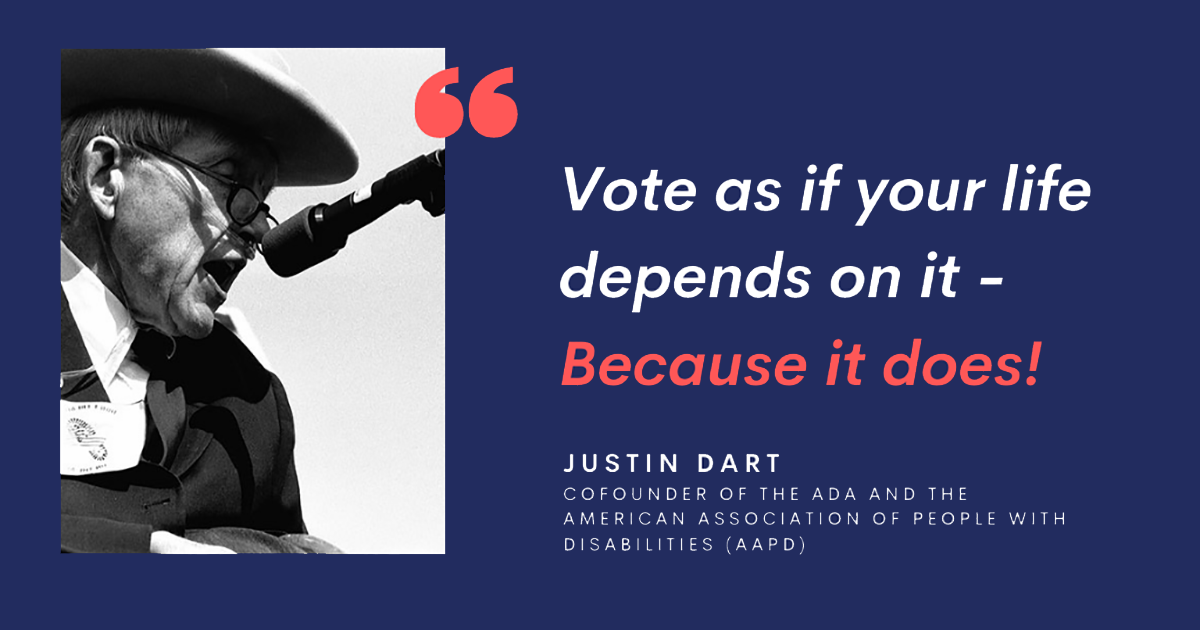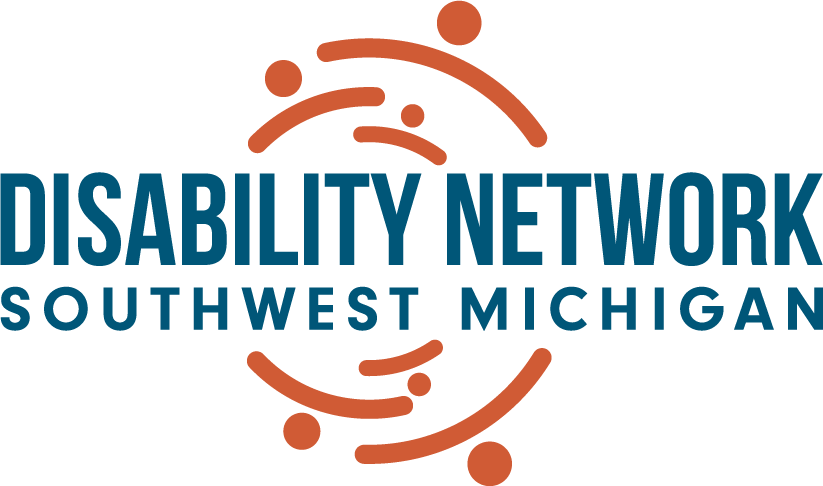
It is said that voting is the cornerstone of American democracy. It’s each citizen’s right to have their say in how, and by whom, their government is run on every level. Unfortunately, many people with disabilities are excluded from the process due to physical, attitudinal, and programmatic barriers. The voices of many in the disability community are being silenced by a lack of access.
Regardless of several federal laws protecting the voting rights of people with disabilities and requiring accessible polling locations and equipment, many people with disabilities find their voting experience falls short of these minimum requirements. A study released in 2017 by the Government Accountability Office reported that approximately two-thirds of the polling locations they inspected on Election Day 2016 had at least one barrier impacting voters with disabilities. By law, each polling location must have accessible voting machines to accommodate any type of disability to ensure that people with disabilities can independently cast a confidential vote in privacy – just like everyone else. In reality, many people with disabilities find that the accessible voting machine at their poll is not set up and/or the poll workers have no knowledge of how to operate it.
Overall, the biggest barrier to people with disabilities having access to an independent vote is a lack of oversite of polling places. Until local, state and federal government entities are willing to prioritize the close monitoring of every polling location for accessibility, proper training for election workers, and functional accessible voting machines, voters with disabilities will never be granted full access and inclusion in the election process.
In recent years, use of absentee voting has grown in acceptance and availability, however, this does not solve the problem of inaccessible voting. Absentee voting is a great option for many people with or without disabilities by removing the need to physically go to a polling location on a particular day, but for many people with disabilities, physical access is not the issue. There are many disabilities which require an accommodation to place a confidential vote. For instance, for people who are blind or low vision, or anyone with a print disability, having a printed ballot arrive in the mail does not make it accessible for them. Perhaps most frustrating is the fact that the technology not only exists to accommodate people with disabilities, but is sitting right there at each polling location. It is the lack of concern on the part of election officials to ensure that the machine(s) are set up properly and staff are trained on instruction of it’s use.
While it is tragic to have any one person’s right to vote denied, the bigger issue is the cumulative effect of stifling the voice of the disability community. According to the Center for Disease Control (CDC) 26% of adults in the U.S. have some type of disability – one entire quarter of the voting population – that should be a very powerful voice. That is, until you factor in the statistic above which states that two-thirds of our country’s polling locations are inaccessible – that voice just got much quieter.
Decisions made in the election process significantly impact our lives and the lives of the people around us. Even though, in our democracy, every person has the right to have a say in these decisions, due to institutional ableism, people with disabilities, and in turn, the disability community is being shut out of the process.
Resources:
- Call the Election Protection hotline for assistance at any time 866-OUR-VOTE (866-687-8683)
- Michigan Accessible Voting
- Election Laws:
- Voting Rights Act of 1965
- Voting Accessibility for the Elderly and Handicapped Act (1984)
- Americans with Disabilities Act (1990)
- Help America Vote Act of 2002
Ways you can DARE to Impact Change:
- Signup to be an election worker – this sign up process begins with a state application.
- Work with your local (county or city) election board or clerk’s office to ensure they have trained staff at the polls who are knowledgeable about using the accessible voting machines.
- Visit polling locations prior to election day to discover any physical accessibility issues and bring it to the attention of the election officials for that site. Depending on the response you get, you may want to involve your local Center for Independent Living (CIL) to assist with follow up advocacy.
- Organize within your disability networks to learn about where the candidates stand on issues related to disability and share your findings.
- Vote! Use the link to the right for Michigan Voter Info for all the information you need.
More Information on the Topic:
- Why Voting Matters for the Disability Community
- How Voters with Disabilities are Blocked from the Ballot Box
- Accessible Voting Systems Are Required by Federal Law and Are Vital to Our Democracy
Note: This article is a publication of Disability Network Southwest Michigan and was written for our DARE to Impact Change publication which provides Disability Advocacy, Rights & Education. Follow this link for more info and to subscribe to our DARE to Impact Change e-publication.
